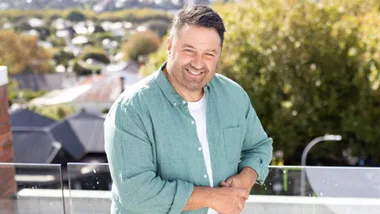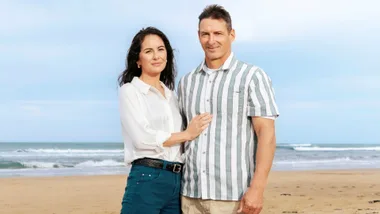As a broadcaster on a national radio show, there’s always an awareness that listeners are relying on the evocative power of your voice to immerse themselves in a story or interview. But when Newstalk ZB host Francesca Rudkin was reading out an entertaining editorial piece on air, a listener’s blunt critique caught her off-guard.
“I remember a woman texted in to say, ‘Goodness, you sound like Darth Vader!’” recalls Francesca. She gives a re-enactment of the Star Wars character whose lungs were scorched by lava.
“And I thought, ‘Yeah, I do, don’t I?’ because I was taking huge breaths in between sentences. Then I noticed that by the end of my show, I was starting to lose my voice a bit. That was really weird because I was quite fit.”
Noticing symptoms
In the weeks that followed, the mum of two became increasingly perplexed that something was up with her health. Small changes like suddenly puffing while walking to the clothesline or getting out of breath when she ran with her best friend Louise Ayrey (also her co-host on their podcast The Little Things).
“Louise and I have run together for years – run and talk is what we do! And she’d ask, ‘Are you alright?’ because I was really struggling to talk all of a sudden.”
Francesca knew she had to take action in November last year after she and a group of friends hiked the Kepler Track, a 60-kilometre trek around rugged mountains in Fiordland National Park.
A couple of the women, who were doctors, heard her unusual breathlessness as she talked and gently encouraged her to get it checked out.
“I immediately did what everybody does and googled my symptoms and went, ‘It’s my heart!’” she admits. “There are some genetic health problems in my family. Our arteries love calcification, so I suspected that might be the problem.
“I saw my GP and I think she could see I was worried that I was going to drop dead if I went for a long run in the Waitakeres.”

Francesca’s BPD diagnosis
Francesca’s lung and heart function was thoroughly checked, before a cardiologist delivered the surprising diagnosis. Her symptoms were the result of a breathing pattern disorder (BPD).
“I was like, ‘What?!’ I’m 51 years old. I thought I had this breathing thing sorted,” she tells with a wry smile. “That was an unexpected twist. I was taken aback that it all came down to not drawing in enough oxygen-rich air, which was actually having quite an impact on my life.
“I guess with a busy family life, a couple of teenagers, work and perimenopause, my body finally got to the point where it went, ‘This is actually a problem.’”
A person with BPD develops an abnormal respiratory pattern and typically breathes faster than they should. They mechanically use the chest and neck muscles rather than the belly and diaphragm. There is growing research that menopause with its hormonal fluctuations is also a common cause of breathing pattern disorders in women.
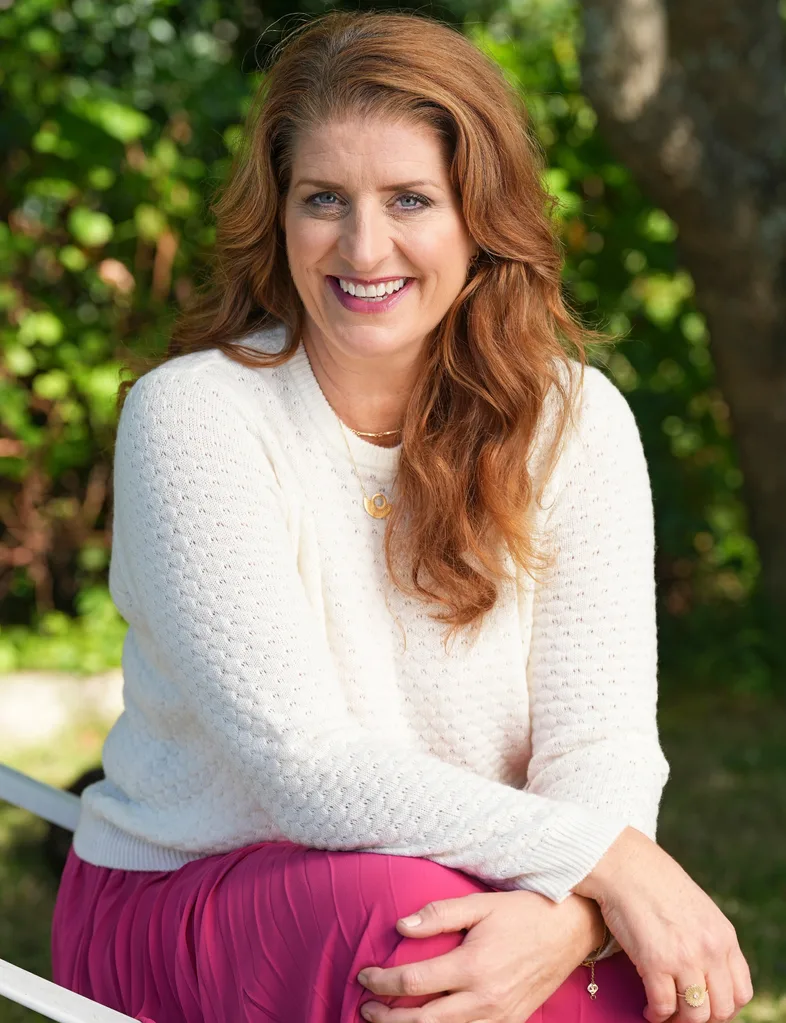
Treatment
Former TV presenter Francesca was recommended to see Auckland muscular skeletal physiotherapist Becky Norrish, who specialises in dysfunctional breathing.
“I thought I was going to go and lie down, and do some lovely, calm breathing exercises. There’s so much more to the art of breathing than I realised,” tells the host of The Sunday Session 9am to noon show.
“We did an ultrasound of my diaphragm. I was running on treadmills and Becky checked my carbon dioxide levels. It’s a lot about how much CO2 you retain and how much you exhale. It was fascinating! As it turns out, in normal relaxed breathing, you use your diaphragm 90 percent of the time to breathe and your upper chest 10 percent.
“Yet I was taking very quiet, short, shallow breaths in my upper chest for 80 percent of the time and my diaphragm for only 20 percent.
“As women, we’ve spent a lifetime sucking in our stomachs. I think my diaphragm was the least-used muscle in my body though! It sat there for 51 years going, ‘Man, this is the life!’” she says, laughing while patting her abdomen.
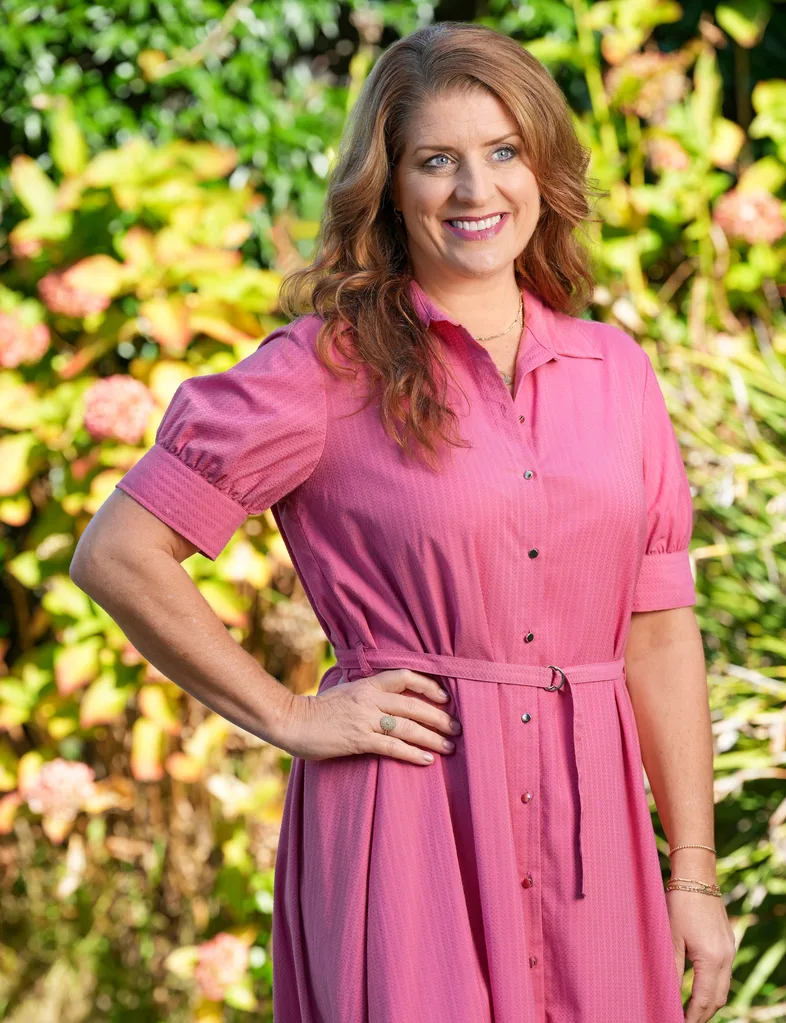
On the road to a full recovery
Chatting animatedly to the Weekly from her Auckland home, there is no hint of the Darth Vader voice today.
Francesca says it’s taken four months to get her breathing back naturally to where it should be and for her respiratory system to accept normal blood gas levels again. But she still has to do breathing exercises every day to increase her exhale and strengthen her diaphragm muscle.
“I was given a gadget that I blow into or suck into daily – I use it at the traffic lights! – and it makes me conscious of what muscles I’m reawakening at that time.
“Now I can exercise better without puffing, my voice sounds better at work and I’ve noticed my cognitive function is better. The days where I used to have brain fog and a lot of yawning have lifted. And, of course, breathing properly works wonders for your stress and anxiety.”
Francesca learned that one in 10 people worldwide – at any age – will have a BPD or chronic over-breathing (hyperventilation syndrome), so it’s a fairly common ailment.
“It made me think just how many of us are going through life not even realising we’re not breathing right,” she muses.
“Especially with everything going on in the world, our mental and physical wellbeing are so connected. Everyone should lie down and work out where they’re breathing from.”
Now that she has improved her symptoms and established an efficient breathing pattern, Francesca is back running three times a week – “although someone walked past me as I ran up One Tree Hill the other day!” – and is hopeful for another family ski trip to Mount Ruapehu this winter.
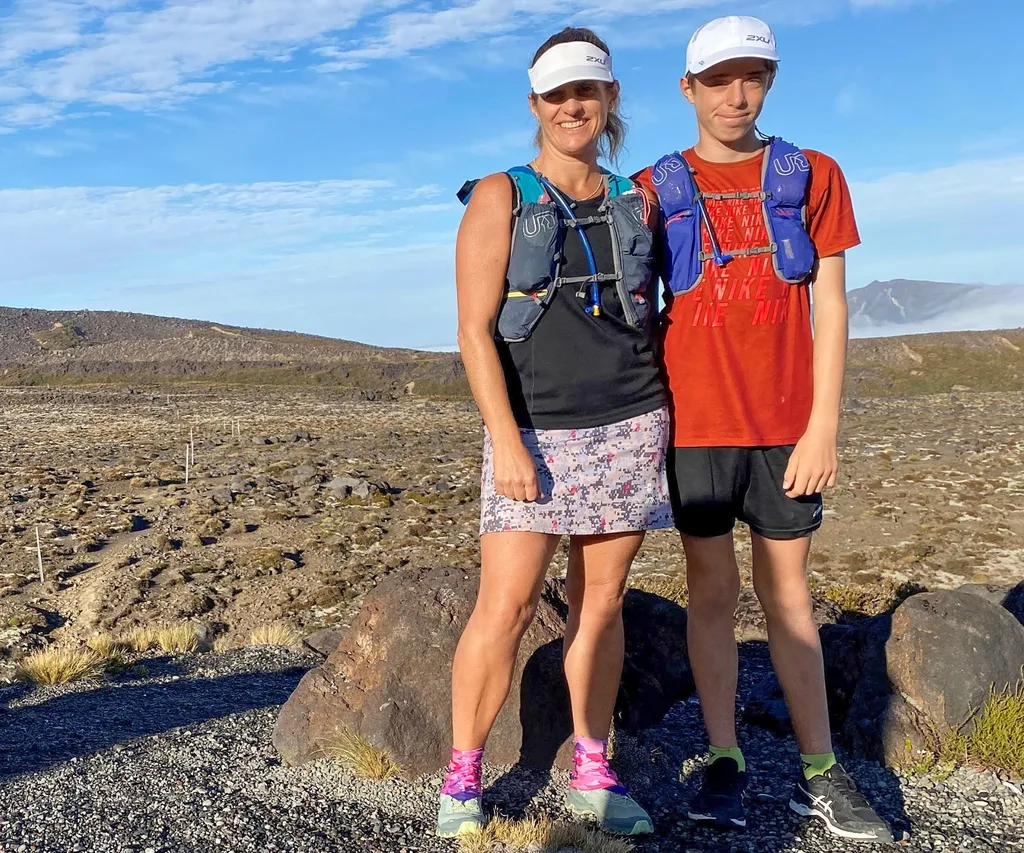
Back to her adventurous home life
Her partner Tim Aitken, 52, and their kids, Oscar, 17, and Lola, 15, have always enjoyed active adventures together. Every year, she treks the Tongariro Crossing and likes to “drag a kid” along with her.
With Oscar now in Year 13 and thinking about heading off to university to study something journalism-related, family time will begin to look a little different.
“I can’t believe my gorgeous Oscar’s in his final year of school,” she laments. “He’s such a good kid, who works hard with two part-time jobs and is getting excited about the next stage of his life.”
Francesca is also incredibly proud of her resilient daughter. She’s dealt with some mental health issues in the past couple of years. One of the hardest parts was watching Lola – a talented contemporary and jazz dancer – withdraw from her friends and family as she struggled with anxiety and depression. They eventually found a psychologist who not only helped Lola work through her challenges, but also diagnosed her with attention deficit hyperactivity disorder.
“She’s an amazing young lady who’s dealt with everything that has come her way, head-on,” enthuses Francesca. “Lola’s embracing her neuro-diversity and doing really well – she’s started a new school and is now thriving.
“Activities that teenagers think are perfectly normal, like sleepovers with friends, are little things that she’s now been able to do again,” tells Francesca.
“It’s taken time and a lot of hard work on her behalf to understand her brain and the way it works. We’re so proud of the way she’s handled herself. My heart goes out to anyone who is dealing with an adolescent with mental health issues.”
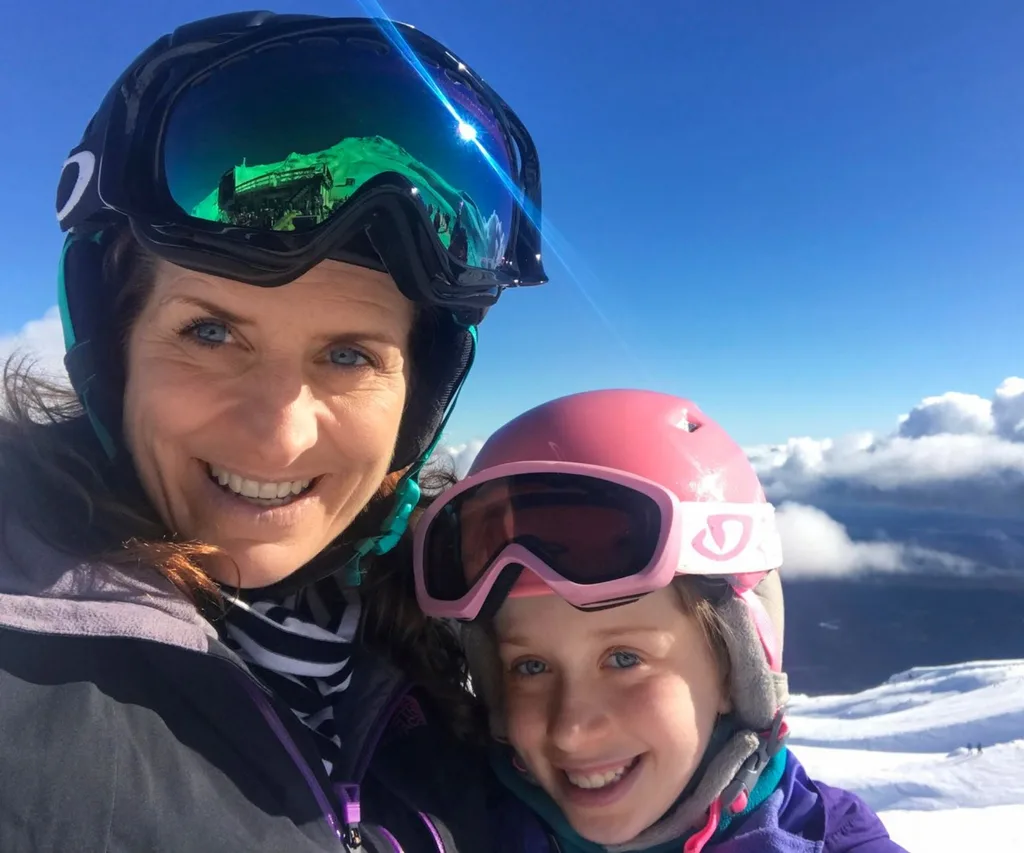
Quick fire
What was the last adventurous thing you did?
A cold-water swim at Takapuna Beach early yesterday morning, in my togs, not a wetsuit. Lola tried to distance herself from her mother on the beach! The water temp was fine – making a run for my towel in the cold wind was the hard part.
What’s your current streaming recommendation?
Friends Like Her on ThreeNow. So good!
Who’s been a favourite person you’ve interviewed on the show recently?
Irish author Marian Keyes. She makes you feel like you’re instantly best friends and even did our interview from her bed because of the time zone. She showed me around her room on Zoom.
Do you have a signature dish?
I love a table of salads. My favourites are Eleanor Ozich’s garlic and lemon zest peas smashed with avocado, and RecipeTin Eats’ quinoa salad with ginger dressing.
Breathing tips
Healthy adults will involuntarily inhale and exhale around 20,000 times a day. This cycle is so routine and rhythmic that we hardly notice it. Except when we can’t seem to get enough air into our lungs.
According to physiotherapist Becky Norrish, if you’re wondering if you are breathing well, an easy place to start is by placing one hand on your chest and the other hand on your tummy. Observe which hand moves the most when you breathe naturally (try not to change or influence your natural breathing pattern).
If you’re breathing using the correct muscles, you should feel your bottom hand gently moving in and out while breathing, whilst there should be minimal movement detected under your top hand.
For a full assessment of your breathing pattern, get in touch with the physiotherapists at Breathing Works.
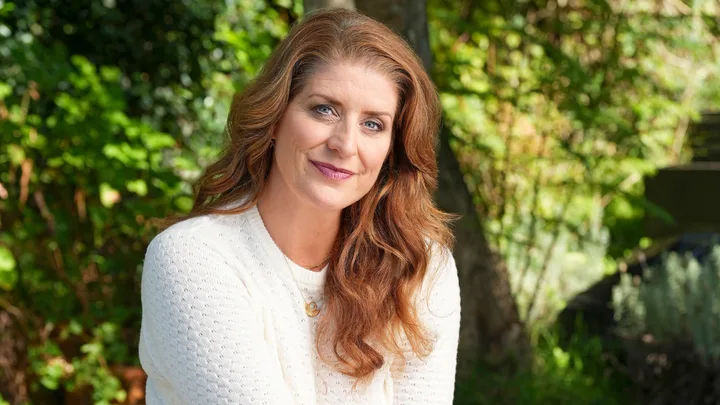 Photos: Robert Trathen
Photos: Robert Trathen
